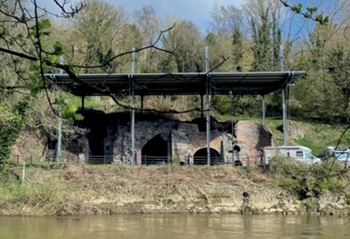Schedule performance index (SPI)
The schedule performance index (SPI) is a measure of how close the project is to being completed compared to the schedule.
As a ratio it is calculated by dividing the budgeted cost of work performed, or earned value, by the planned value.
For example:
- A project has a budgeted cost of £120,000.
- According to the schedule, 15% of the project should have been completed after one month (planned value). That is £120,000 x 15 / 100 = £18,000.
- But after a month, only 12% of the project has actually been completed (earned value). That is £120,000 x 12 / 100 = £14,400.
SPI = EV / PV = 14,400 / 18,000 = 0.8
This means that for every estimated hour of work, the project team is only completing 0.8 hours (just over 45 minutes).
If the ratio has a value higher than 1 this indicates the project is progressing well against the schedule. If the SPI is 1, then the project is progressing exactly as planned. If the SPI is less than 1 then the project is running behind schedule.
[edit] Related articles on Designing Buildings Wiki
- Activity schedule.
- Cost performance index (CPI).
- Benchmarking.
- Design programme.
- Earned value.
- Fast-track construction.
- Key performance indicators KPI.
- Lead time.
- Programme for building design and construction.
- Project crashing.
- Scheduling construction activities.
- Time management of construction projects.
[edit] External references
Featured articles and news
Art of Building CIOB photographic competition public vote
The last week to vote for a winner until 10 January 2025.
The future of the Grenfell Tower site
Principles, promises, recommendations and a decision expected in February 2025.
20 years of the Chartered Environmentalist
If not now, when?
Journeys in Industrious England
Thomas Baskerville’s expeditions in the 1600s.
Top 25 Building Safety Wiki articles of 2024
Take a look what most people have been reading about.
Life and death at Highgate Cemetery
Balancing burials and tourism.
The 25 most read articles on DB for 2024
Design portion to procurement route and all between.
The act of preservation may sometimes be futile.
Twas the site before Christmas...
A rhyme for the industry and a thankyou to our supporters.
Plumbing and heating systems in schools
New apprentice pay rates coming into effect in the new year
Addressing the impact of recent national minimum wage changes.
EBSSA support for the new industry competence structure
The Engineering and Building Services Skills Authority, in working group 2.
Notes from BSRIA Sustainable Futures briefing
From carbon down to the all important customer: Redefining Retrofit for Net Zero Living.
Principal Designer: A New Opportunity for Architects
ACA launches a Principal Designer Register for architects.





















Comments
Its just 12/15 no need to multiply the percentage by the budget.
Indeed.